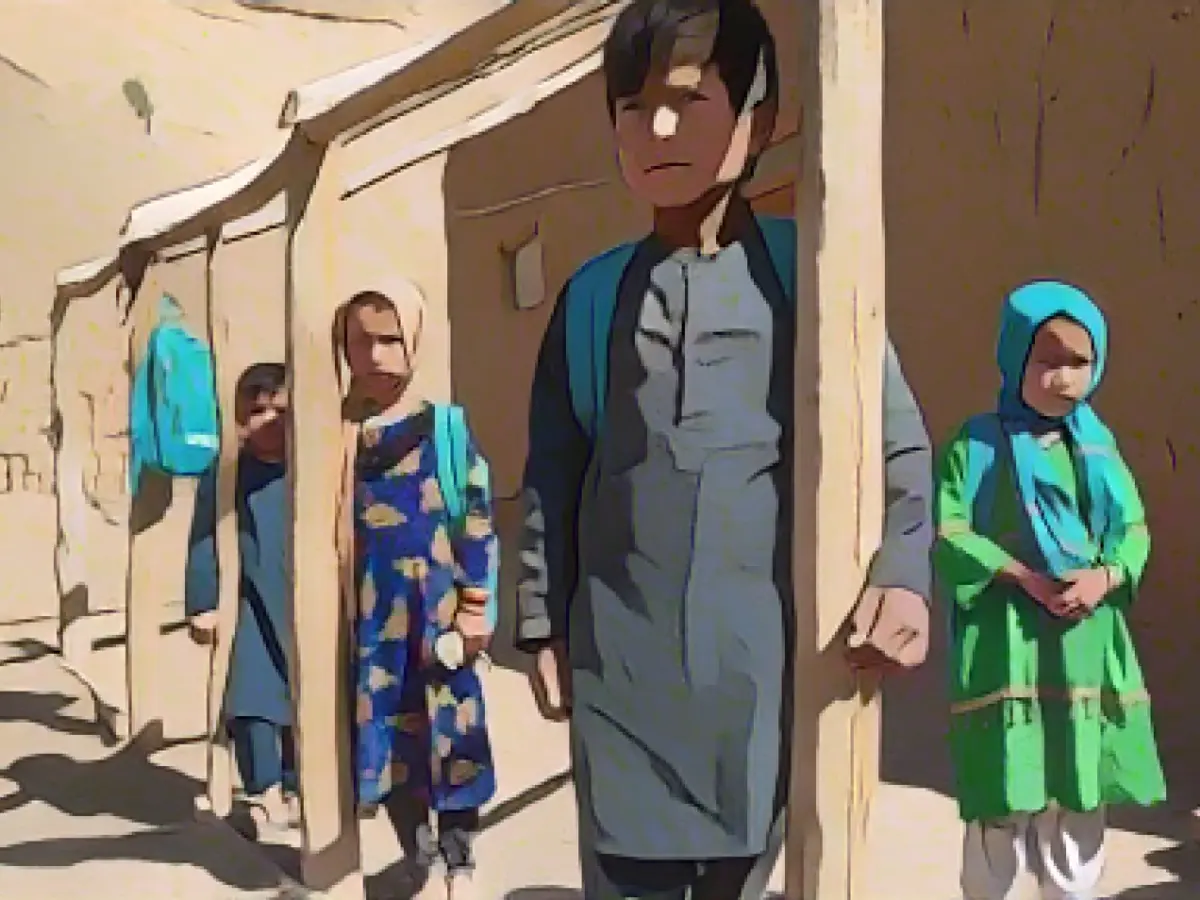Title: The Unseen Impact of Taliban's Rule on Boys' Education in Afghanistan
In the wake of the Taliban's power reclaim, human rights activists have sounded warnings about the potential long-term consequences of their policies on boys' education. A Human Rights Watch (HRW) report highlights concerns, such as curriculum modifications, increased corporal punishment, and the dismissal of female teachers, which jeopardizes young males' futures in Afghanistan.
Following their August 2021 takeover, the Taliban has been under the spotlight for their extensive restrictions on women's education. Schools beyond the sixth grade are closed for girls and women. However, this attention towards girls’ education overshadows the damage the Taliban's policies inflict on boys' education, as pointed out in the HRW report.
The report includes interviews with eighth-grade students and their parents. HRW reveals that subjects considered crucial for a comprehensive education, like sports, arts, and English, have been eliminated or discontinued due to a lack of qualified teachers. Additionally, the report discloses a surge in corporal punishment, which can result from trivial infractions like an untidy haircut or possession of a mobile phone.
Financial difficulties within families push boys towards work instead of school, more frequently. These changes in the educational landscape lead many boys with apprehension and uncertainty about their futures. Sahar Fetrat, HRW's deputy women's rights researcher, urges concern, stating that "The Taliban are inflicting irreversible damage to the Afghan education system for both boys and girls."
Insights from Enrichment:
The Taliban's effect on boys' education, while substantial, tends to be overshadowed by their restrictions on girls' education. HRW acknowledges that the Taliban's policies have contributed to a decrease in the quality of education for boys due to several factors:
- Curriculum Changes: The Taliban has intensified religious studies in schools, replacing various subjects with Islamic teachings. This alteration in the curriculum might reduce the focus on secular subjects and life skills education.
- Shortage of Qualified Teachers: The Taliban's restrictions and bans have caused a shortage of qualified teachers, especially in subjects other than Islamic studies. This scarcity could impact the overall quality of education for boys.
- Instability and Uncertainty: The Taliban's actions, such as the closure of the Monitoring and Evaluation Department in the Education Ministry, contribute to instability within the education system. This instability can further erode the quality of education for both boys and girls.
- Enrollment Decline: Although boys are still allowed to attend school, overall enrollment in higher education has seen a significant decrease. The number of university students has dropped by 53% since 2021, demonstrating a broader impact on education that extends beyond girls.
- Pledge to Observe Shari'a Law: Male teachers and students in some provinces, like Kandahar, have been asked to sign a pledge to adhere to the Taliban's interpretation of Shari'a law. This includes abiding by strict dress codes and behavioral guidelines, which can result in expulsion or job loss for noncompliance.
- Impact on Teacher Morale and Motivation: The Taliban's policies have generated an atmosphere of fear and oppression among teachers. The conversion of teacher training centers into madrasas and the dismissal of professors who traveled abroad have demotivated many educators, leading to a downturn in the overall educational environment.
These impacts collectively contribute to a broader erosion of the Afghan education system, affecting not only girls but also boys and the overall quality of education in the country.








